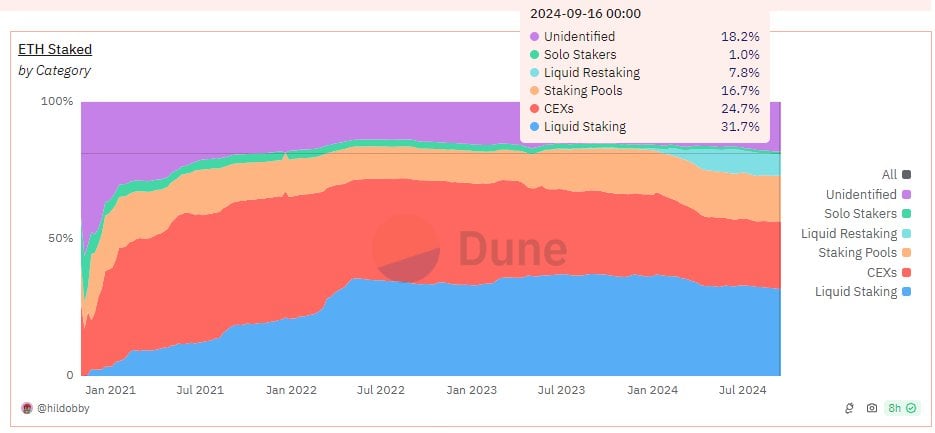At a recent event in Singapore, Vitalik Buterin talked about growing concerns over Ethereum’s network security. Specifically, the creator of the blockchain highlighted some overlooked vulnerabilities that could pose a big threat, even though the current staking mechanisms can be called robust.
It all centers on solo stakers, which Buterin called the first and last line of defense, which play a big role in keeping the network secure. They make sure that censorship is blocked and that the blockchain is not corrupted by hackers. By resisting regulatory control, they protect the network from outright censorship.
However, Buterin’s talk made it clear that even this vital layer of security can be undermined by subtle, indirect attacks that are more cost-effective for potential adversaries.
Ethereum’s weakest link
The blockchain visionary declared that the Ethereum network is still vulnerable to a 67% capture attack. This is where attackers could get control of more than two-thirds of staked ETH, allowing them to rewrite both the blockchain’s past and future without facing direct slashing penalties. If this happens, it would be a huge blow to Ethereum’s integrity.
One option might be to increase the quorum threshold, for example, from 67% to 75% or higher. Vitalik Buterin warned, though, that this could reduce the cost of attacks, making the network vulnerable in new ways.
Right now, the cost of holding the Ethereum network hostage is 33% of staked ETH. Buterin mentioned that there are cheaper options for malicious actors.

If you can bribe some of the core developers or get your hands on a few of the big node operators, you can get around the high upfront cost of a direct attack. This suggests that Ethereum might be spending too much to prevent the wrong type of attack.
To make things more secure, Buterin said, Ethereum needs more solo stakers. They can act as the critical quorum-blocking set needed to defend Ethereum at its current finalization threshold.





